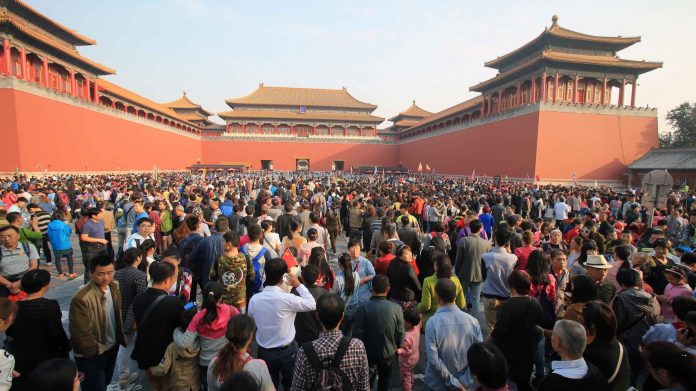China’s policymakers may have just found a viable solution to fire up the nation’s economy, which has been losing some of its steam this year. Said solution is to ask the studious working class to take more leave.
With disappointing economic data from the first three quarters and a GDP expansion at the slowest pace in the last decade, something drastic had to be done in order to ease the minds of observers and investors.
So the National Development and Reform Commission (NDRC), dubbed the “mini-State Council,” scrambled to issue a fresh policy paper aimed at spurring consumption during the holidays.
The NDRC document, which was recently made public, encourages local governments to come to grips with employee benefits protection and implement rules to ensure employees’ rights to take paid leave; especially during the summer and winter breaks in order to encourage more family time.
“Employee and social welfare departments and worker unions must be given more oversight of employees’ rights protection including annual and paid leave at private enterprises and SMEs,” read the policy paper.
Stocks of the tourism, catering and accommodation and even baby-care sectors in Shanghai and Shenzhen rallied instantly on the news of more holidays, with many hitting the daily cap of price surges, the Shanghai Securities News reported. Consumption is one of the key barometers of the well-being of the economy and it tends to show particularly high resilience when merrymakers are still willing to spend.
For example, during the National Day celebrations in October 2019, about 782 million Chinese nationals stormed tourists spots throughout the country from the Forbidden City in Beijing to the former Presidential Palace in Nanjing. This rush generated approximately 650 billion yuan (US$92.7 billion) in revenue for related industries, according to the Ministry of Culture and Tourism.
That said, consumer rights watchdogs and industry associations in many provinces were also inundated with complaints about overcrowding, price hikes and counterfeit goods. Employees are now being encouraged to take their leave during off-peak season to avoid major public holidays when major transportation hubs and tourist attractions are filled to the brim.
As such, NDRC policymakers are gazetting more national holidays on traditional Chinese festivals between March and October as well as approving more holiday entitlements for government and state-owned enterprise workers.
The NDRC has stated that it hoped to see the private sector follow suit, as many employees at tech firms and startups in China often toil six days a week under the notorious 996 work scheme. While China has long implemented a five-day work week so that civil servants, SOE workers, and teachers can enjoy two-day weekends, the reality is that the private sector often encourages employees to work no less than six days every week for fear of being replaced.
There have been calls from SOE interest groups for government subsidies and tax incentives when their employees take leave to offset lost sales or revenue, especially amid more stringent employee protection oversight and inspections.
In certain provinces, organisations have begun experimenting with a 2.5-day weekend program where employees are allowed to work half-day on Fridays in an effort to bring about better work-life balance and to stimulate consumption. Other nations such as Denmark have awarded three-day weekends and have reported noticeable increases in workforce morale and productivity.





















